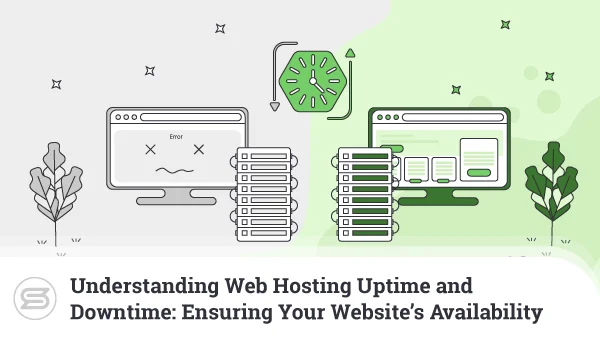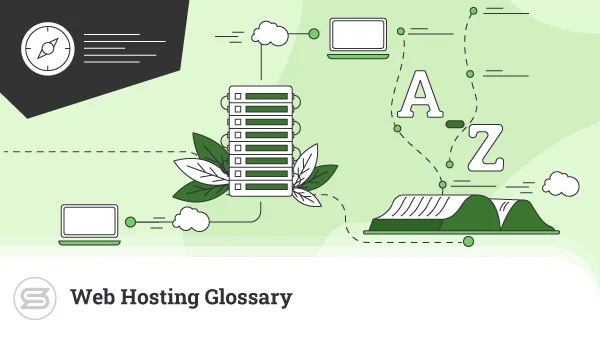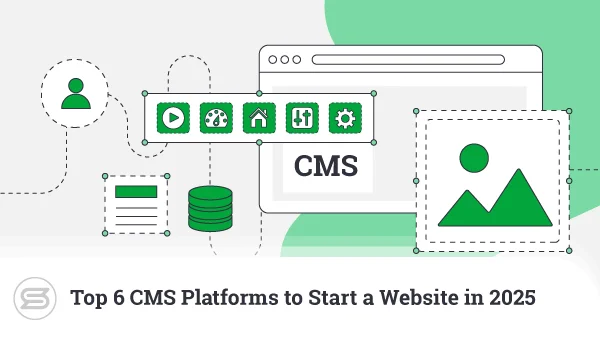Shared Hosting vs WordPress Hosting: Which is Right For Your Website?
Shared services are the biggest niche in the web hosting industry, housing hundreds of millions of websites worldwide. It’s no surprise, really – the solutions let you build a fully operational site at the cost of a few bucks per month.
But then WordPress happened.
Once just a blog builder, WordPress grew to be a full-blown CMS and suddenly everyone wanted to join the site-building game. Web hosting providers saw opportunities in this sharp rise of demand and soon we had the first WordPress-optimized deals.
Everyone had a different vision for this new service. While many just slapped the WordPress name on their shared web hosting plan, some did specific optimizations to best serve WP clients.
So today, we are putting shared hosting vs WordPress hosting to the test to see which is better and what is the ideal client for each service.
But first – the basics.
What is Shared Hosting?
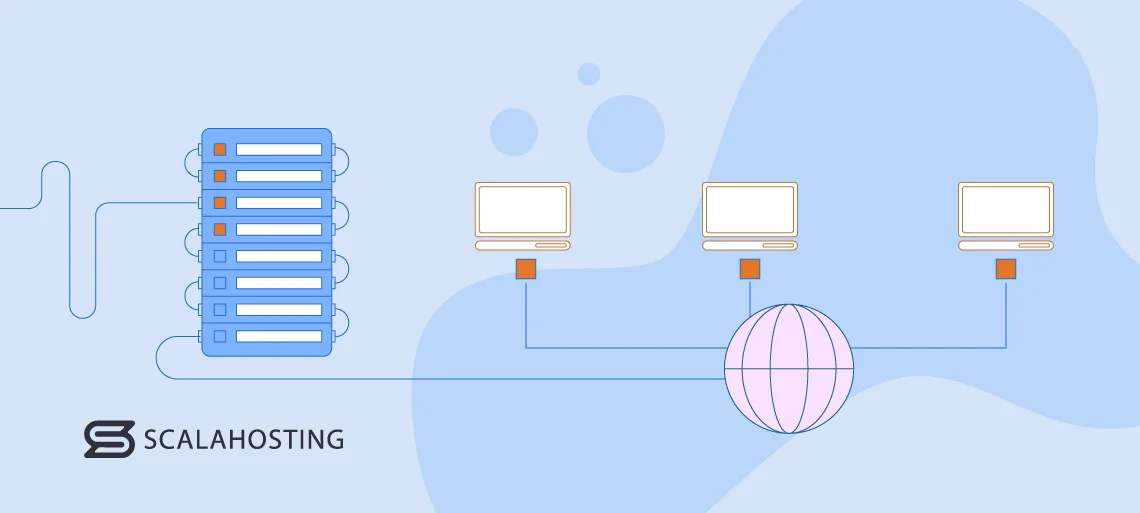
Shared web hosting is a type of service where one server machine is split into many client accounts, all sharing the same system resources and physical hardware. This is the most budget-friendly service as the server costs are also shared between all users.
In this web hosting type of configuration, you do not know who your neighbors are, and, hopefully, their projects will never interfere with yours. Still, as a shared server can sometimes house more than 100 clients, you can see how overcrowding can easily turn into an issue.
Pros and Cons of Shared Hosting
Shared hosting is the entry-level solution that many first-time site owners choose when starting a new project. This is not really surprising, considering that this is the cheapest way to start a website.
Is it the right go-to solution for any online project, though?
Let’s take a closer look at the ins and outs of the shared hosting service and outline its most notable advantages and disadvantages.
Shared Hosting Pros
Shared services are the most utilized type of web hosting for a reason. It’s easy to start with no previous experience and with minimal investments, focusing on site building instead of server management.
- Affordability – Renting a dedicated server might give you all the control and security you need, but it’s a huge overkill for most online websites. Plus, let’s be honest – not everyone can spare at least hundreds of dollars per month for such an investment. Plenty of shared hosts will give you more than enough disk space and bandwidth and will only charge $3-$5/mo for an account.
- No technical knowledge needed – You have no root access in a shared environment, which means you don’t need to know anything about server management or optimization. Your hosting company takes care of the technicalities and maintenance so you can focus solely on building a successful WordPress website.
- Ease of use – Whether you choose a website builder or a fully-featured CMS, your host will ensure everything is installed and set up for you to start building your page. Most platforms are very intuitive and have a low learning curve. Additionally, you have plenty of tutorials and knowledge base articles for self-help.
Shared Hosting Cons
Cheap services are rarely associated with high quality, and that is certainly the case here. While it’s super easy to start on a shared server, you have to consider the possible drawbacks.
- Shared resources – Sharing your CPU, RAM, or bandwidth is not inherently bad, but the more clients on the same server – the less resources left at your disposal. Overcrowded machines are a common industry problem and can easily lead to slow website performance and even service downtimes.
- Security risks – Server neighbors can often pose a security threat to your own websites. It doesn’t matter how well you protect your site – if a hacker breaks in through another account on the shared server, they can gain access to all clients on the same machine. Keep a close eye on your file permissions to minimize such risks.
- Less control – You might have fewer responsibilities when your shared hosting provider manages the web server, but that means you have fewer freedoms as well. Sometimes the host can help with minor tweaks, but the general OS and hardware configuration cannot be altered. If you want to deploy a custom software, you need to check with your provider beforehand if that’s even possible.
As you can see, trusting shared solutions for a small personal or hobby WordPress website might be an excellent idea. The service is well-suited for testing purposes as well, allowing you to build a project in a low-cost environment.
But if your future website aims to represent your brand and gather a growing audience, shared hosting will quickly become insufficient.
In such cases, you have a much better option – managed WordPress services.
What is Managed WordPress Hosting?
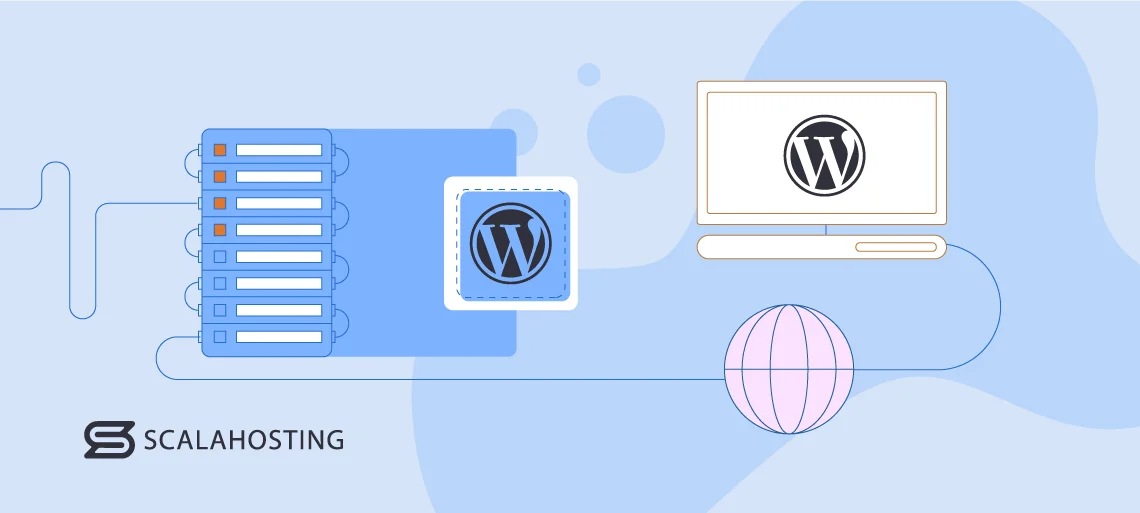
WordPress hosting services encompass a variety of optimizations that aim to enhance the performance and security of WP-built websites. On top of that, you have access to trained professionals that understand the CMS inside and out.
Most hosting companies have different ideas of what falls into the WordPress-optimized hosting category.
As the WordPress CMS only needs PHP and MySQL to run properly, any Linux configuration works just fine for the software. That’s why the majority of hosts simply advertise their shared services as “WordPress hosting,” emphasizing on perks like one-click installers and daily backups.
But some providers decided to go the extra mile.
They offer WordPress-tailored deals that include software and plugin installations, automatic updates, a staging area for offline editing. Some even go as far as developing their own proprietary tools for WP users.
WordPress Hosting Pros and Cons
Optimizing a server for a specific application sounds like a great thing. You have met all requirements and ensured the app works in a well-suited environment. What could go wrong?
Digging deeper into what the market has to offer, we can outline a few distinct advantages and disadvantages of the managed WordPress services.
WordPress Hosting Pros
- Optimized performance and enhanced security features – The average shared server is set to support hundreds of different web apps, which is normal, seeing that users like to have versatility and freedom to switch between software. Focusing on just one content management system allows the hosting provider to do fine tweaks and settings to really boost its speeds and harden its security. We are talking about caching plugins, vulnerability patches, sometimes even detailed site audits.
- Automatic updates – Keeping the core application and associated WordPress plugins updated is essential for your website performance and safe running. Reliable WordPress hosts eliminate the risks of leaving your site exposed through old and vulnerable software and add-ons. The automation often includes daily backups, but you should always keep your own copies off-site, regardless of the hosting service.
- Expert Assistance – Ensuring your future host can provide stellar and helpful support is a no-brainer. Managed WordPress hosting providers take great pride in their assistants’ level of knowledge and expertise with the CMS. Just imagine having an operator that has gone under hundreds of hours of training and case resolutions with this specific app.
WordPress Hosting Cons
- Costlier solutions – With so many WordPress-specific features and optimizations, you should expect the prices to reflect the added extras. Rates for WP-accelerated deals can often be double the average shared deal. And industry leaders like Kinsta and WP Engine can even charge you more than a mid-tier VPS hosting solution.
- Limited control – Managed hosting services can sometimes strip off a little control from the user and give it to the WordPress hosting provider (unless you also get root access). In this type of configuration, you are more or less reliant on the quality of your host and their recommended setup. Advanced customizations are still possible but it’s best they’re made under the host’s discretion.
- Plugin restrictions – Keeping the server perfectly optimized for WordPress means you can’t just install anything on it. While the CMS supports thousands of different themes and plugins, managed hosts will restrict the usage of add-ons that have known vulnerabilities or pose performance risks.
As you can see, no hosting option is an ideal choice in all cases. Depending on your website plans, feature needs, and budget, you can find more appeal in a shared deal or a managed WordPress one.
Here are some more comparable factors that can help you make an informed decision.
Shared hosting vs WordPress hosting – In-Depth Comparison
As we have found so far, shared hosting and WordPress hosting services aren’t necessarily different things. The underlying server architecture is practically the same for both types of solutions, but WP hosts apply more tweaks and optimizations to their machines.
That doesn’t mean the two services should be considered and treated the same, though.
On the contrary – some factors can easily separate one from the other:
- Cost: Managed WordPress hosts put extra effort and resources into optimizing their servers for the app, and the monthly prices often reflect that. WP-accelerated providers are generally costlier because of the dedicated support and extra services that come with the deal.
- Performance Metrics: In a shared setup, you have a large pool of server resources (CPU, RAM, bandwidth) and hundreds of people who connect to it. Because of that, a few high-demand users can easily exhaust the available resources, and all other clients will subsequently suffer from service interruptions and even downtimes.
When hosted on a VPS, any reliable managed WordPress hosting plan can avoid that. There are significantly fewer users on a single physical server and all their resources are isolated. This means that no one can “take” from your CPU or RAM – they are allocated just for you. As a result, your WordPress site can perform way better, and you can enjoy faster page load times.
- Scalability & Growth: Regular web hosting plans give you a choice of fixed packages with a predetermined amount of resources, like disk space. Once you outgrow them – you have to upgrade your account to the next possible package.
That is certainly not the case with a VPS hosting option for WordPress. Virtual servers are highly scalable and allow you to add more CPU, RAM, or storage as the need arises. Furthermore, if you go for a cloud hosting plan, your resource options are practically limitless because of the vast network of interconnected servers.
- Security: Just like with performance, hosting providers put extra effort into securing the environment for the needs of WordPress specifically. The CMS holds the largest market share, which makes it the most lucrative target for web attacks. That’s why reliable hosts ensure the server environment is up for the challenge – web application firewalls (WAF), SSL certificates, multi-factor authentication, and core WordPress updates are often part of the deal.
- Support: There are hundreds of web-building applications out there and adequately supporting them all requires extreme versatility and in-depth knowledge. Even the biggest shared hosts struggle to be perfect in all areas.
In comparison, WordPress web hosts only have to focus on one CMS and they can dedicate more time exploring every nook and cranny. That’s the reason managed WP clients can always enjoy prompt and on-point assistance.
- Best Client: Shared services go for the mass client. You can house practically any kind of low-traffic website – a portfolio page, a hobby site, or a small photo gallery. You have hundreds of different tools to choose from but not much room for growth.
Although similar in functionality, WordPress hosting packages are specifically tailored for this particular software. The good thing is that WP can be customized for any kind of project – an online shop, news outlet, or forum portal. Additionally, such hosting plans can scale better, allowing you to accommodate even a high-traffic project without compromising on performance.
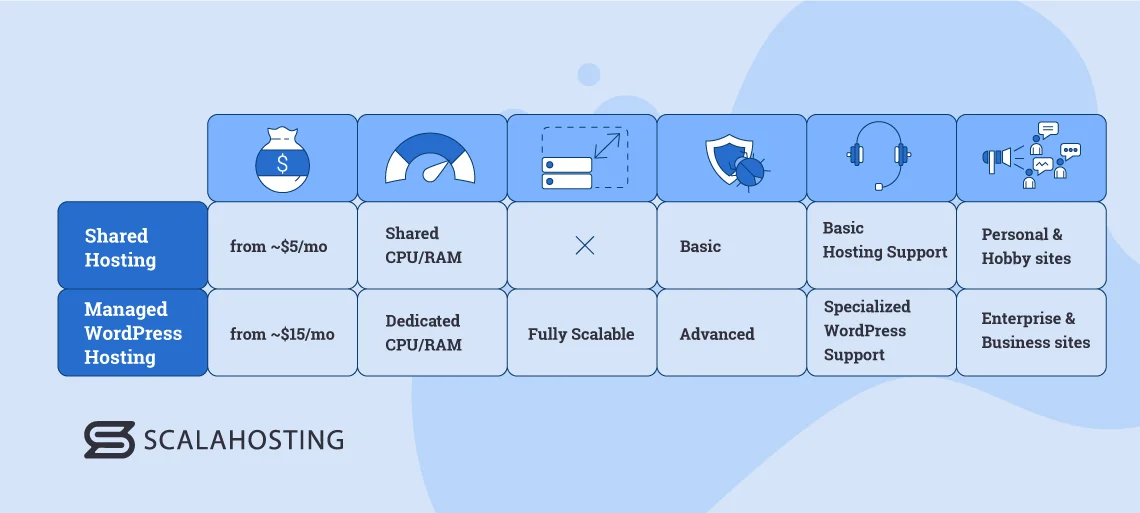
Planning for the future is extremely important when considering the hosting service for your new website. If you want to build a project that will frequently grow in functionalities and visitors – you will bump into numerous limitations on a shared plan.
Even though managed WordPress hosting involves more hands-on management, its performance and security opportunities far outweigh those of any shared server.
ScalaHosting Managed WordPress Hosting Plans
ScalaHosting fully supports the growth of the biggest open-source project and ensures WP lovers can find a well-fitting deal.
Three shared WordPress hosting deals are available for anyone that is looking for an affordable entry into hosting, but the real power comes with the managed VPS solutions. Opting for a cloud virtual server, the client can enjoy perks like isolated resources and dedicated app support without having to know anything about server management.
ScalaHosting is all about changing the industry for the better, so we rely on in-house web development to add extra value to our WordPress VPS deals.
This includes:
- SPanel – An all-in-one versatile platform for web hosting management. Aiming to serve as a direct cPanel alternative, this proprietary solution offers an intuitive interface, a user-friendly environment, and a ton of advanced customization options. You can manage your domain names, website files, email accounts, and web server. All that, at no added cost.
- SShield – The tool that will take your website security to unprecedented heights. No longer do you have to worry about DDoS attacks, pesky malware, or annoying spam – SShield catches all suspicious activity before it can do any harm.
- SWordPress Manager – The jewel in the WordPress crown. This helpful tool will ease your WP management and automate important tasks like site installation and data backups. Moreover, WordPress software updates are detected and applied as soon as they are released. The Lock function is a unique addition here, allowing the client to effectively block unauthorized access and deny customizations from anyone apart from the site admin.
Scala is driven by a client-first approach so our customers are actively involved in any new developments and updates. You can suggest and vote for any new SPanel features, constantly improving your experience with our services.


Conclusion
Now that you know the essentials of shared and WordPress hosting, you can easily determine which service would best fit your needs. If you are unsure of what software will best work for you, a shared account would give you enough freedom and versatility to make your first steps in site building care-free.
And if you already have a little web experience and know that WordPress is definitely the platform for you – there are plenty of WP-optimized hosts to take care of you.
Frequently Asked Questions
Q: What is the difference between shared hosting and dedicated hosting?
A: Shared services outline the process of splitting a server machine into many smaller instances, hosting a different client on each one. All users share the same CPU, RAM, storage, and bandwidth.
Q: Is managed WordPress hosting worth it?
A: If you are looking to host WordPress sites, getting a more streamlined service is totally worth it. On the one hand, you will benefit from specific WP optimizations and performance boosters. On the other hand, a managed WordPress hosting service includes dedicated support and their expert know-how with the most popular content management system.
Q: Can I host multiple websites on a WordPress hosting plan?
A: You are absolutely free to host more than one WordPress website on a WP-optimized plan. It doesn’t matter if we’re talking about personal sites or business pages – as long as you fit within the allocated resources of your account – you are good to go. Some providers will also give you advanced hosting options within this environment – automatic WordPress updates (core and plugin), daily backups, and WordPress-specific security measures, to name a few.

